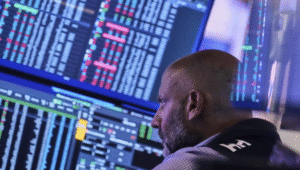If the CEO of a soda company claimed that advancements in soda-making technology would wreck the global economy, most people would probably think they’re joking or out of touch. But when tech CEOs make similar statements about AI, people tend to listen closely.
Dario Amodei, the 42-year-old CEO of AI company Anthropic, recently told Axios that the technology his company and others are developing could eliminate half of all entry-level office jobs within a few years. He repeated this claim during an interview with CNN’s Anderson Cooper, saying AI is rapidly improving and will soon outperform humans at almost every intellectual task — including tasks done by CEOs themselves.
However, Amodei didn’t provide any data or evidence to back up the prediction that 50% of jobs will vanish. His message fits a familiar Silicon Valley narrative: AI will revolutionize everything for the better, but only after causing major disruption first — and we should just trust the experts on this.
Amodei painted a picture of a future where AI cures diseases like cancer, boosts economic growth to 10% annually, balances budgets, but also leaves 20% of people unemployed. When asked how a strong economy could thrive with so many people out of work and unable to spend, he didn’t provide an answer.
Labor economist Aaron Sojourner weighed in, explaining there’s a theoretical possibility if AI drives a huge surge in productivity — maybe a 30% jump in output per hour worked. But he called that vision “wildly unprecedented,” noting that past technological advances like computers only increased productivity by 2% to 3%.
At its core, Amodei’s message is a sales pitch. As head of an AI company, he benefits if people believe this technology is both powerful and inevitable. Axios described his prediction as a “white-collar bloodbath,” but even some AI supporters pushed back. Tech entrepreneur Mark Cuban reminded people that many jobs disappeared in the past, like secretaries and office dictation workers, yet new jobs also emerged. He argued AI will create new roles that increase overall employment.
While nothing Amodei said was entirely new, it was carefully framed to sound dramatic and draw attention to Anthropic’s latest AI model, Claude, which recently got a big upgrade and competes with OpenAI’s ChatGPT.
Amodei profits from AI technology even as he warns about its dangers. Anthropic brands itself as an “AI safety and research” company and often emphasizes the risks of AI, positioning itself against the more optimistic views of OpenAI, where some of Anthropic’s founders originally worked before leaving over ideological differences.
From my perspective, I’d love to live in a world where AI helps create a cancer-free society with shorter workweeks and no poverty. But I’m skeptical that generative AI is the key to that future. No tech leader has convincingly shown how.
Right now, tools like ChatGPT and Claude excel at specific tasks: summarizing texts, drafting emails, helping students with homework, and recommending books — sometimes surprisingly well. But they also have clear limits. They hallucinate facts, make mistakes, and can be manipulated, flaws humans deal with too.
If AI companies can transform these imperfect text generators into a true economic revolution, great. But that reality seems far away. Amodei’s warnings come off more like a marketing pitch than a public service announcement. It’s up to AI companies to prove how their tech could be so disruptive — and how they plan to manage those risks — instead of just shouting about the dangers.














